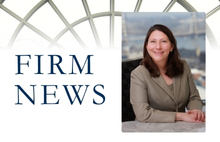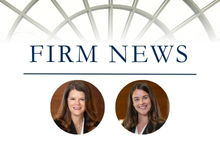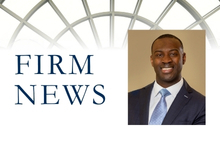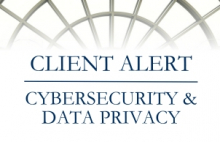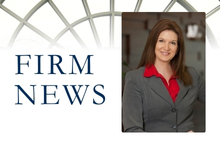The NLRB’s New Agenda
December 12, 2014Introduction
Highlighted by the long-awaited decision in Purple Communications, Inc. and today's adoption of a new rule amending representation-case procedures, the National Labor Relations Board (NLRB) has recently issued a string of rulings that suggest an expanded reach into the workplace.
Formally, the NLRB is charged with protecting the rights of employees to organize and with enforcing the rights guaranteed by Section 7 of the National Labor Rights Act (NLRA). The NLRB has historically focused on conducting "union" elections and safeguarding the rights of employees in a unionized setting.
Union membership in the United States, however, has been in steady decline since its peak in the early 1950s, when almost 1 in 3 private sector employees were union members. By 2010, that number dropped to less than 1 in 10 employees. In response to the decreasing unionized workforce, the NLRB has made what appears to be a deliberate effort in recent years to assert its jurisdiction over non-unionized employers. The NLRB's revised focus is based on a significantly broader interpretation of the protections afforded under Section 7 of the NLRA. Many employment policies and practices that for decades were deemed acceptable and not in violation of Section 7 are now being looked at anew by the NLRB.
With last month's election putting the Republican Party back into power in the Senate, the revised focus of the NLRB may take on a particular importance for employers. Many believe that the new Republican majority in the Senate will act quickly to push legislation aimed at curtailing the NLRB. Accordingly, we expect to continue to see increased NLRB activity over the next few weeks prior to the start of the next Senate session at the end of January. This article will explore some of the recent controversial decisions and discuss some of the NLRB's potential actions anticipated in the coming months.
The Right to Use Employers' Email Systems for Organizing
On December 11, 2014, the NLRB issued a divided decision in Purple Communications, Inc., holding that workers have a right to use their employers' email systems for nonbusiness purposes. In particular, the NLRB held that this email use was permitted for any purpose under Section 7 of the NLRA, including communications discussing compensation, benefits, and union organizing. The decision reversed the precedent set in the 2007 Register Guard case, which prohibited employees from using employers' systems for purposes under Section 7.
Marking a distinct change in course, Thursday's Purple Communications decision ruled that "employee use of email for statutorily protected communications on nonworking time must presumptively be permitted by employers who have chosen to give employees access to their email systems." The majority articulated two limitations to the general rule: (i) the right applies onlyif an employer has already provided employee access to its email system; and (ii) an employer may lawfully maintain a prohibition on non-work use of email if "special circumstances" warrant such a ban.
Employers will need to consider how this new rule may apply to their current policies. Next week, Lewis Rice will be distributing a comprehensive analysis of the Purple Communications decision, detailing the various implications of the NLRB's new rule on employee email communications.
Workplace Conduct Policies
In The NLRB has issued a series of decisions over the past year that suggests it will continue to take a closer look than ever before at employee handbooks. Not only is the NLRB placing work rules under a microscope, but it is concluding that many long-held rules violate employees' rights to engage in "concerted activities for the purpose of … mutual aid or protection" as guaranteed by Section 7 of the NLRA ("Section 7 Rights"). Although an employer might rarely violate Section 7 Rights explicitly, the NLRB has found that such rights may be violated implicitly. To determine if a work rule or policy crosses that line, the NLRB considers whether: (1) an employee would reasonably construe it to prohibit Section 7 activity, (2) the rule was promulgated in response to union activity, or (3) the rule has been applied to restrict the exercise of Section 7 Rights.
In Hills and Dales General Hospital and Danielle Corlis (April 1, 2014), the NLRB held that it was unlawful for an employer's policy to prohibit "negative comments" and "negativity or gossip" and to direct employees to represent the employer "in a positive and professional manner" in the community. The panel found that these provisions could reasonably be construed to prohibit NLRA-protected activity.
In Hoot Winc LLC (May 19, 2014), the NLRB expanded the application of the controversial D.R. Horton decision, ruling that various policies chilled Hooters employees' exercise of Section 7 Rights. The NLRB found that many handbook rules were overbroad, including policies that stated:
- "We will not make negative comments about our fellow team members, and we will take every opportunity to speak well of each other."
- "We will represent [employer] in the community in a positive and professional manner in every opportunity."
- "We will not engage in or listen to negativity or gossip. We will recognize that listening without acting to stop it is the same as participating."
In addition, the NLRB found unlawful, other policies prohibiting employees from discussing their gratuities with co-workers and guests, insubordination, and unauthorized dispersal of sensitive company material. As a result of the NLRB's new focus, employers are encouraged to revise policies in light of these rulings, identifying with as much specificity as possible the conduct being regulated and providing examples where appropriate. Employers should also consider specifying what is not prohibited by these policies and/or including "Freedom of Association" type savings clause in their handbooks.
Social Media Policies
Along the same lines as workplace conduct policies, the NLRB has been extremely active in the area of social media. Through interpretive guidance from its Office of the General Counsel as well as numerous opinions on specific cases, the NLRB has routinely invalidated portions of employers' social media policies on the grounds that they chilled employees' Section 7 Rights. The Board's recent activity in this area is so significant that we will address social media policies separately in the coming weeks.
Revised Election Rules
On December 12, 2014, the NLRB announced the adoption of a final rule amending the representation-case procedures. The rule will be published in the Federal Register on December 15 and will take effect April 14, 2015.
Among the various amendments, the new rule confirms the NLRB's priority in bringing about "quickie" elections, a procedure under which elections will be held in 10 to 21 days from the filing of the petition (instead of the traditional 42 days under existing rules). According to the NLRB, the amended rule is intended to enable the Board to more effectively administer the NLRA with modernized processes, enhanced transparency, and reduced litigation and delay. A lengthy dissent to the amendments was filed by two Board members, criticizing the new rule as "massive in scale and unforgiving in its effect." Indeed, former NLRB Board Member Brian Hayes objected to the new rule, claiming that the principal purpose was to minimize an employer's legitimate opportunity to express its views about collective bargaining and make it substantially easier for unions to win these elections.
Lewis Rice will distribute a complete analysis of the final rule amending the NLRB's representation-case procedures closer to the effective date in April 2015.
Joint Employer Standards
The NLRB is also considering adopting a new standard for the joint employer standard. The "actual control" standard articulated in TLI (1985) and Laerco (1984) has governed joint-employment relationships for 30 years. Under consideration in Browning-Ferris Industries (decision pending) is whether the TLI and Laerco "actual control" standard will continue to govern, or whether a new "indirect control" standard will be adopted.
The Browning-Ferris decision may also provide authority for a "joint-employment presumption" for large client companies. The NLRB's General Counsel argued that large client companies should be presumed to be joint employers because of their economic power; opining that joint employer status should exist where "industrial realities" make the potential joint employer essential for meaningful bargaining.
Under this loose standard, large companies who use temporary labor from staffing agencies or general contractors who subcontract out work to subcontractors will be presumed to be a joint employer with those businesses to which it subcontracts or uses temporary employees. This new standard would even go so far as to find joint employer status in the typical franchisee/franchisor relationship. For example, on July 29, 2014, the NLRB Office of the General Counsel announced that, after investigating claims brought by employees against McDonald's Corporation and its franchisees, if the parties cannot settle the claims, formal complaints will be filed listing McDonald's Corporation as a joint employer of its franchisee's employees.
An Unknown Chapter for the NLRB
With the NLRB's attempting to extend its jurisdictional reach over non-unionized employers, it is difficult to guess what will happen next. Employers can likely expect to see a lot of activity in the coming months. Not only is the NLRB determined to move forward on its own, there is an urgency to issue rulings and make administrative decisions in advance of the new Senate being sworn in and power shifting to the Republican Party.
The labor and employment attorneys at Lewis Rice represent and advise employers in all aspects of labor relations, including collective bargaining negotiations, union avoidance, unfair labor practice charges, unlawful union activities, and labor arbitrations.


